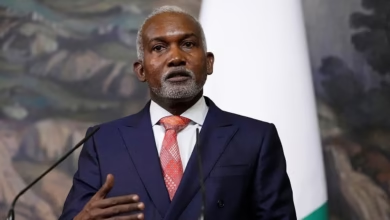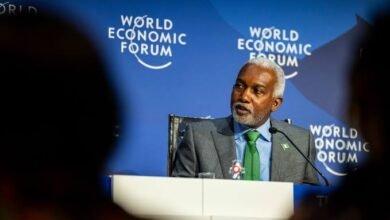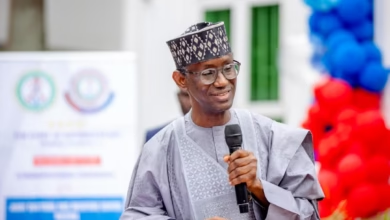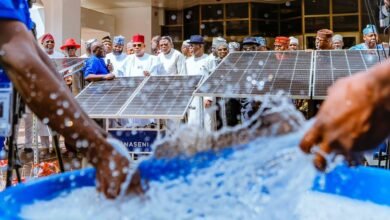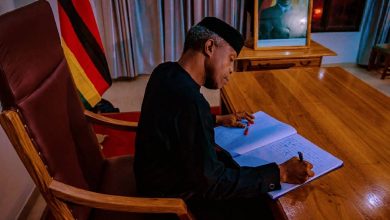Opinion
Nuhu Ribadu and the New Phase of Nigeria–U.S. Security Engagement
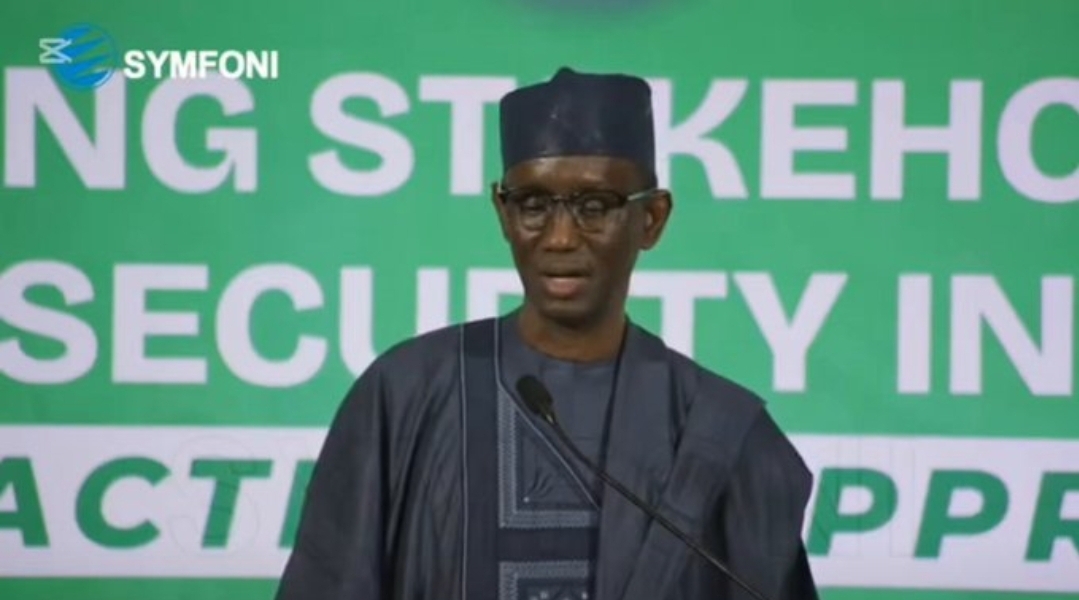
There are clearly diplomatic tensions between Nigeria and the United States. The strength of our institutions, as well as the quality and caliber of our diplomats matter if we aim for the best results. Mallam Nuhu Ribadu, the National Security Adviser to the President has shown to have the strength and wit for this moment—calm when necessary, blunt when required, and always anchored by an unwavering belief in truth.
Over the past weeks, he has quietly but firmly rebalanced Nigeria’s security engagement with the United States, bringing both countries to a point of sober, respectful, and constructive cooperation after a period marked by misunderstanding and unhelpful rhetoric.
This reset was the product of deliberate engagement, clear articulation of Nigeria’s security realities, and Ribadu’s characteristic refusal to bend the truth for diplomatic convenience. He led a senior delegation to Washington at a time when the U.S. had taken sensitive decisions regarding Nigeria’s religious-freedom designation—decisions that were hasty and insufficiently informed by on-the-ground realities.
Rather than meet the US escalation with escalation, Ribadu chose a different path: clarity, candour, and facts.
In multiple engagements—with Congressman Riley M. Moore, the White House Faith Office, the U.S. State Department, the National Security Council, Pentagon leadership, and congressional committees—Ribadu walked the Americans through the realities of Nigeria’s multidimensional security landscape. He was blunt where necessary, particularly on the narrative that seeks to present Nigeria as a country where Christians are systematically targeted by the state. He clarified that Nigeria’s security crisis is not a religious war but a complex mix of terrorism, banditry, arms trafficking, misinformation, and localised conflicts affecting citizens of all faiths.
His delegation included some of the most senior figures in Nigeria’s security architecture, including the Inspector General of Police, the Attorney General of the Federation, the Chief of Defence Staff, the Chief of Defence Intelligence, and senior advisers. This sent a clear message to the United States: that Nigeria was not there to plead, but to correct, clarify, and collaborate.
One of the most consequential meetings happened behind closed doors at the Pentagon, where Ribadu met U.S. Defense Secretary Pete Hegseth and the Chairman of the Joint Chiefs of Staff, Gen. Dan Caine. Mal. Ribadu approached the engagement the same way he has approached every major national challenge for the past two decades: with firmness, facts, and a refusal to be intimidated.
He made it clear that Nigeria welcomed partnership, not paternalism; cooperation, not unilateral conclusions. He emphasised that Nigeria has consistently worked to protect vulnerable communities, including Christians in the Middle Belt and Northeast, and has never wavered in its duty to uphold freedom of religion. What was needed, he stressed, was deeper collaboration by the two countries, and not labels driven by faulty intelligence.
These engagements have defused tensions between Nigeria and the United States and have resented the security relations of both countries.
American officials have affirmed their readiness to deepen intelligence cooperation, accelerate equipment support, expand joint training, and strengthen early-warning systems for vulnerable communities. The U.S. government also agreed to a non-binding cooperation framework immediately and to establish a Joint Working Group to ensure continuity and coherence.
By the time the Nigerian team concluded its Washington rounds, it had achieved what many observers quietly acknowledged: Nigeria had restored respect to its diplomatic footing, established clarity on its security realities, corrected damaging narratives, and re-anchored its relationship with the United States on truth and mutual respect.
President Bola Ahmed Tinubu followed swiftly by appointing Mal. Ribadu to chair the Nigerian side of the new U.S.–Nigeria Joint Working Group. This was a natural choice. Mal. Ribadu had shown credibility with international partners and brought to bear his history as one of Nigeria’s most fearless public servants. Those who have worked with him know that he is governed by a simple creed: the truth is the truth, no matter who is sitting across the table.
And it is that authenticity, coupled with years of experience confronting terrorism, corruption, and institutional decay, that allowed him to steer Nigeria through one of its most delicate diplomatic episodes in recent years.
For a country that continues to confront insurgency, violent extremism, and the daily task of safeguarding its diverse communities, the work ahead is enormous. But Nigeria now stands on more stable ground, with a partner in the United States that is willing to listen and engage.
The significance of this moment is in the quiet but decisive assertion that Nigeria will define its own realities, tell its own story, and engage the world from a place of dignity, truth, and competence. Mal. Ribadu has helped set that tone, and in so doing, reminded both sides that partnership works best when it is built on respect, not rhetoric.
— Eyimofe Amajuoritse is a journalist covering Nigeria’s foreign relations.

